As you may know, I grew up in New York. And my parents were adventurous eaters. I have fond memories of walking through neighborhoods far from home where my father would hold up different food items in a store and ask simple questions. “Soak first?” or “salty?” These were foods marked with signs in languages we didn’t read. Chinese for example. And this was our normal. Smells of spices dried a continent away, or loops of noodles dried into little nests. I have always loved going into neighborhoods that are not designed with me in mind, and learning just the tiniest bit about another culture. Food eaten, clothes worn, that the people from that country feel that their dish soap/toilet paper/ice cube trays are worth importing, despite the apparent (to me) availability of versions of these items in the new country.
Since leaving New York, I have never had the luxury of the concentration of different cultures in such a small space. When I lived in Portland there were few paltry pockets, and while in DC there were a few more, they were mostly in the suburbs, where I wasn’t. It seemed like for me, that just is New York, and isn’t any place else.
There’s a funny thing that happens to me with Santiago, which is that it makes me feel a strange nostalgia at times for my 80s Brooklyn. Something about the light, pollution, old fonts on signs, sometimes peeling paint and brick buildings, the occasional coca cola out of a glass bottle. It feels like someplace known.
I was home working the other day and (as I’ve been trying to do every day lately) went out for a a walk. I set out walking to the east, down towards Estación Central, an area full of shops and import stores and school supplies and crockery and stands and stores that smell like incense and that sell those multi-clothespin apparatuses designed to hang socks and undies off of on your clothesline, which I need, but seem to never find the perfect one of.
I wandered around a bit, and then decided I’d stop in at one of my new favorite import stores, called Orient Market. What’s special about this place is that they have some local farmer who grows all kinds of vegetables that I don’t really know what they are. A few times a week, at around 1 PM, these vegetables come in, and two hours later, they’re gone. I happened to get there at just the right time, and bought something I know as “Chinese Broccoli” but which surely has another name. I picked up some tofu as well (far from the cheapest place to buy it, but I was there, and seldom buy tofu anyway). I have bought these items from this store before, and although I remember the man who sells them to me, I’m sure he doesn’t remember me. The first time I was there, I asked him what the vegetable is called. This led to some back and forth confusion, but I never found out, because we didn’t really have any languages in common. So I thanked him, and kept walking. This time I didn’t ask, just walked out and started back towards home, happy with the smell of someone else’s spices and visions of packages of I-don’t-know-what in my head.
As I was getting closer to home, I thought (as I sometimes do), bubble tea. I should have some. There’s a bubble tea place (actually a little fast food place/restaurant) near my house. And then I thought, hmmm. Just how tight is the Taiwanese community? I turned plastic bag from Orient Market around so the name was visible, and went in to order “Te rojo con leche con tapioca,” as I do. The guy at the second place saw the bag and said, “El es mi paisano,” talking about the owner of the first store. This a) is true, and b) is not how you say that in Chilean Spanish. But this family, who own the bubble tea shop used to live in New York, where we do use the Italian word for “compatriota” on occasion. And we had a little laugh and smile. I pulled out the vegetable to show him what I’d bought, and he told me what it is called in Taiwan, which I first repeated (probably incorrectly), and then promptly forgot.
“You have to cook it in a hot pan, with ginger and garlic,” he told me and I nodded, and then said, “I actually used to eat it as a kid.” I’m from New York, I explained. “New York…” he said. The whole time we were having this conversation, he was on the phone with someone. “Did you know that they were also from my country?” he said, pointing to the bag. “Yep,” I said.
And then I asked, “do you also know the people who own Te León?” (another Taiwanese tea food and tea shop in Patronato, which I have failed to get to while it’s open, since I usually save my wanderings over there for weekends, and on Sundays many things are closed). He pointed to the phone, and said, “I’m on the phone with him right now.”
I could tell he was talking about me on the phone. “word word word New York word word” (Word is where I don’t know what he was saying). “Tell him I’m going to come by and see him soon, I want to visit his shop,” I said.
“word word word word Te León word word New York.”
And the man at the counter looked at me and said, “Do you speak Mandarin Chinese?”
I was surprised. I have never been asked this question before.
I have to assume it was the question of the guy on the other side of the phone, who could not see me. Me with the curly hair, and freckles and utter ignorance of how to say anything, not even the name of a basic vegetable in Mandarin Chinese.
“No, just English and Spanish,” I said.
He finished up his phone call, charged me for my tea and handed it to me. And I walked out drinking/eating it and recognized a glimpse of New York, or Chinatown, mixed with Chilean semi-friendliness to curious foreigners and a feeling of self-sufficiency and slight pride in knowing where to get hard-to-find food products, and the first expression that came to mind was in Spanish. I was “en mi salsa,” which is to say, “in my element,” and I still have no idea how to say that in Mandarin Chinese. I might have to go over to Té León and ask.
Tea shop in my neighborhood= Chicken Tea, Sazie 2069, closest metro República
Tea shop in Patronato= Té León, Eusebio Lillo 398B, closest metro Patronato
Taiwanese Food shop= Orient Market, Grajales 2950, closest metro Estación Central
Pictured above: urban garden on Domeyko. Most of what you see is ortiga (nettles), which is/are edible when cooked, but not eaten in Chile. Also, that is a fine looking bunch of the monster swiss chard we get here.

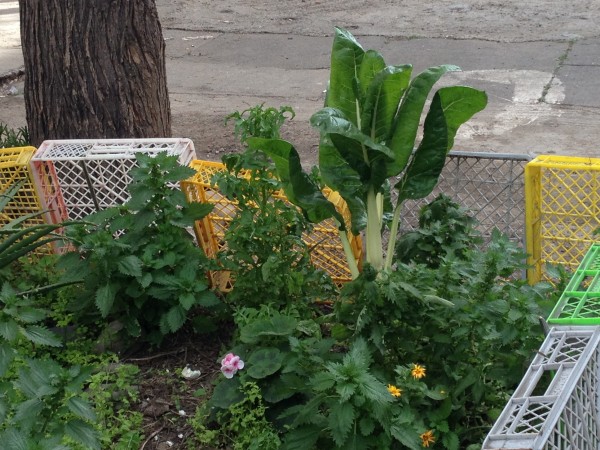
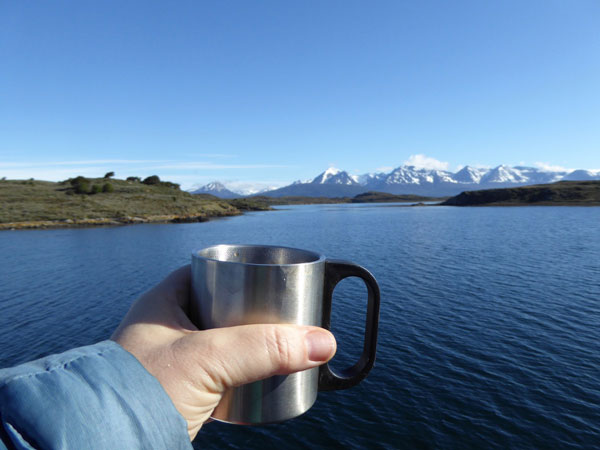
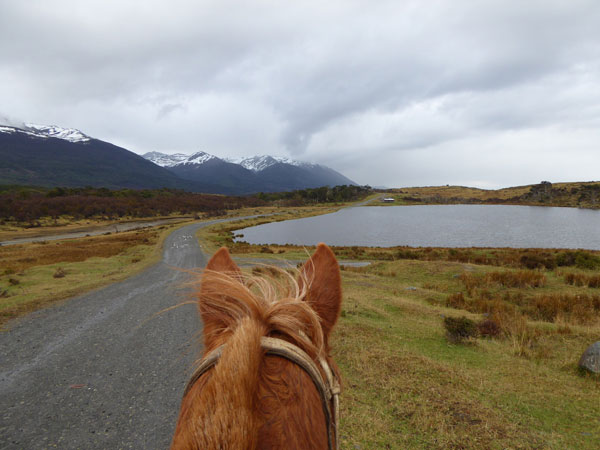

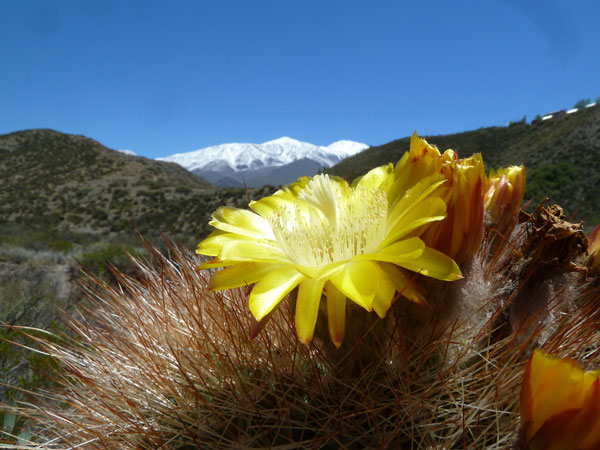
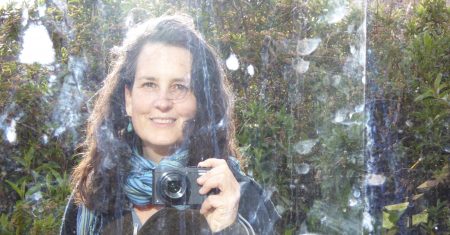
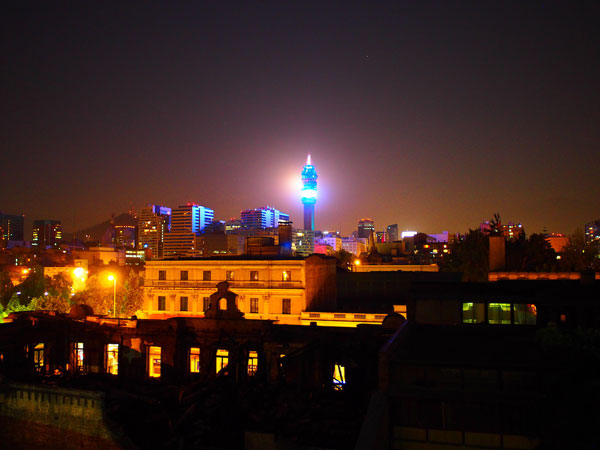
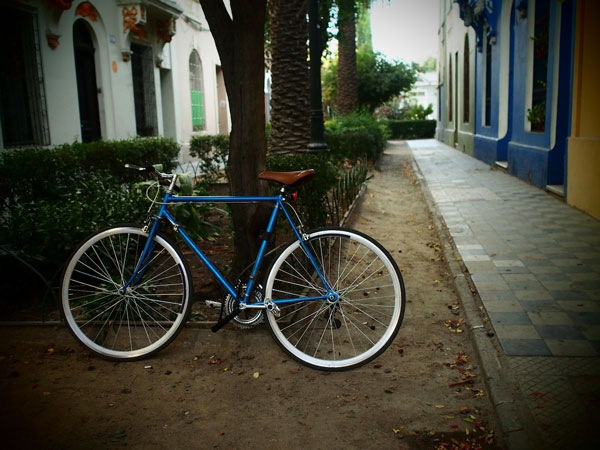


Great find! And did you find out what that vegetable was?
I keep on asking, they keep on telling me, and I keep on forgetting. I can take a pic the next time I’m over there and they have veggies. It’s like I extra super plus don’t speak Mandarin Chinese.
What a fun little story. I also find it interesting, and maybe even touching, that every country exports their own dish soap to NYC. Once I bought some Russian shower gel in Brighton Beach. Crappy suds, but worth it for the nostalgia 😉
yeah, it’s funny. I’m looking at the toilet paper (that was in a Korean import shop), and thinking, smell? texture? print? what’s the difference. And then I wondered if I feel more comfortable in the states because it’s the toilet paper of my youth. I am still pondering this! Also, nice to hear from you!
You should have said: I do, but I choose not to 🙂
I’m not sure anyone would have been fooled, but yes. Let’s say I speak all the world’s languages. Clearly false, but think of the possibilities!
Oh, tofu! I’ve never found tofu in Chile. But then again I havn’t really looked for it. Good to know though (don’t eat meat).
This blog is very helpful, I ask my husband about these things constantly but he doesn’t know much (probably because he doesn’t care either).
Anyway, I’ve finally bought the tickets for chile! We’re going in november 26. So now I don’t need you’re blog to experience Chile. Though I will keep reading it of course, because I like it so much.
ooh, exciting! tofu in the asian stores and jumbo supermarkets. But I’m sure you’ll find plenty of other things to eat!
Luckily I’m into fish, as are my daughters.
Jumbo seems to be the store to find everything, my relatives told me they found swedish rye bread, Wasa.
Oh, and I must ask. Which one do you prefer, Jumbo or Lider? Falabella or Paris? Easy or Sodimac? I’m sorry, I’m just very curious, haha.
I usually go to Santa Isabel because it’s closest to me, though there is also a Lider, Tottus and Unimarc not that far away. I guess I usually end up at Paris, but I very seldom buy anything from multi-tiendas. I mean, once I have my furniture, what else is there to buy? Sodimac is more metro-accessible (or walking-accessible) to me, usually, but if I’m at a mall that has the other (I feel like there must be one), I’d go there. I’m not really that particular about any of these things. In Chile it’s pretty much all the same stuff everywhere, except for the imports.
Haha, I forgot about Santa Isabel. I agree with you. Especially with Falabella and Paris, they got different colours though.
It’s like the shoes stores in the malls. All same shoes!
I prefer the ferias and secondhand shopping, second hand shops are very common in Sweden. But I’m a hypocrite, ’cause I loove Ikea (they have cheap fika, as a swede I must have fika).